Nationalism & Liberal Democracy
Understand the rise of nationalism and the crisis of liberal democracy.
Winter 2014
Jerusalem, Israel
Is national pride to be celebrated or feared? Is “national interest” a noble idea? Do nations have a future—and should they have a future? Or is the world moving toward a new age of cosmopolitan internationalism, trans-national ideologies, and sub-national tribalism? Are deeply felt national histories so easy to forget, and is it really desirable that they be forgotten?
Led by Dr. William Kristol, editor of The Weekly Standard and one of the leading public intellectuals in America, and Dr. Ran Baratz, prominent Israeli thinker and writer and founding editor of Mida, this institute will examine the political and moral questions surrounding nationalism and nation-states. The course will begin by examining the case for and against nationalism, drawing upon some of the major works of modern political theory. It will then look in detail at three “regimes”—Europe, America, and modern Israel—drawing upon a mix of classic texts, speeches, and case studies.
In Europe, we see the dominant moral and political idea of our age—“human rights”—in its most advanced form. All persons everywhere are entitled to equal dignity and equal protections. The most dangerous threats to human rights—terror and empire, religious extremism, natural catastrophe, market dysfunction—all transcend national borders. Human rights cannot be secured by nations, and excessive national pride is a threat to the new ideal of the free, sovereign, cosmopolitan individual. The nation must be overcome and replaced by a centralized governing body that is large enough to protect global citizens from global threats.
In America, we see the ideals of universal liberty and natural rights combined with a belief in the exceptional character and special responsibilities of the American nation. Does American power serve the interests of world order? Do Americans believe in their own exceptionalism, or do they seek to become a nation among the nations?
The question of nationalism takes on special significance for citizens of Israel, the world’s only Jewish State. Zionism is a form of nationalism, and the founding of Israel represents the culmination of ancient longings for the rebirth of Jewish sovereignty in the Jewish homeland. But it was also founded in partial response to World War II and the Shoah it perpetrated on European Jewry. If the intellectual architects of the European Union believe that the national form causes violence and stands in the way of a more harmonious world, the intellectual architects of the State of Israel believed the opposite—that only a state dedicated to the protection of the Jewish people will ensure their welfare and prosperity.
Taken together, these urgent questions invite us to think about the deepest meaning and true character of political life, returning us yet again to the great texts and thinkers who illuminated the problems of politics with greatest clarity and force.
This course was offered in conjunction with the Tikvah Fund. Photos by Vladislav Klapin on Unsplash.
Bill Kristol & Jonah Goldberg on nationalism & populism
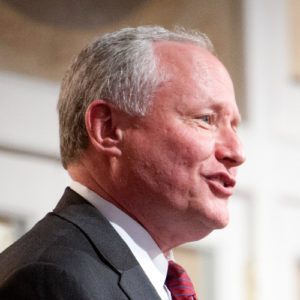
William Kristol is editor at large of The Weekly Standard, which, together with Fred Barnes and John Podhoretz, he founded in 1995. Mr. Kristol has served as chief of staff to the Vice President of the United States and to the Secretary of Education. Before coming to Washington in 1985, Kristol taught politics at the University of Pennsylvania and Harvard’s Kennedy School of Government.

William Kristol is editor-at-large of The Bulwark. He was a founder of The Weekly Standard, and is a regular guest on leading political commentary shows.
Before starting The Weekly Standard in 1995, Mr. Kristol led the Project for the Republican Future, where he helped shape the strategy that produced the 1994 Republican congressional victory. Prior to that, Mr. Kristol served as chief of staff to Vice President Dan Quayle during the first Bush Administration, and to Education Secretary William Bennett under President Reagan. Before coming to Washington in 1985, Mr. Kristol was on the faculty of Harvard University’s Kennedy School of Government (1983–1985) and the Department of Political Science at the University of Pennsylvania (1979–1983). Mr. Kristol has published widely in areas ranging from foreign policy to constitutional law to political philosophy.
He is co-author, with Lawrence Kaplan, of the best-selling book The War Over Iraq (2003) and the co-editor of The Neoconservative Imagination (with Christopher DeMuth, 1995), Present Dangers (with Robert Kagan, 2000), and The Future is Now: American Confronts the New Genetics (with Eric Cohen, 2002).
He hosts Conversations with Bill Kristol, which features in-depth conversations with leading figures in American public life.
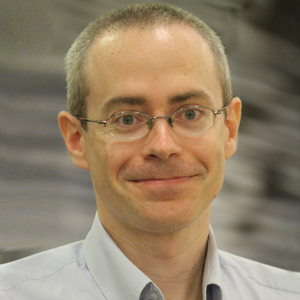
Ran Baratz, professor of ancient philosophy at Shalem College, teaches philosophy, history, and Zionist thought at a variety of other Israeli institutions as well. The executive director in Israel of the Tikvah Fund’s program in political thought, economics, and strategy, he is the founding editor of Mida, a new Hebrew-language website.

Ran Baratz, professor of ancient philosophy at Shalem College, teaches philosophy, history, and Zionist thought at a variety of other Israeli institutions as well. He is the founding editor of Mida, a Hebrew-language website.
Specializing in Greek Philosophy, Dr. Baratz earned his doctorate, summa cum laude, from The Hebrew University of Jerusalem. He has published many op-eds, essays, and studies in Israel’s leading newspapers and periodicals.
Readings:
Readings:

Diana Schaub
Diana Schaub is a nonresident senior fellow at the American Enterprise Institute (AEI), where her work is focused on American political thought and history, particularly Abraham Lincoln, Frederick Douglass, African American political thought, Montesquieu, and the relevance of core American ideals to contemporary challenges and debates. Concurrently, she is Professor Emerita of Political Science at Loyola University Maryland, where she taught for almost three decades.
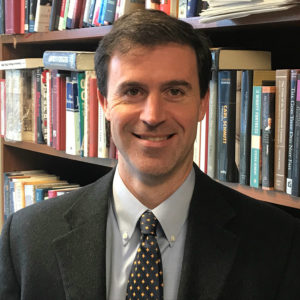
Richard M. Reinsch II
Richard M. Reinsch II is Editor-in-Chief and Director of Publications at AIER. He is coauthor, with the late Peter A. Lawler, of A Constitution in Full: The Unwritten Foundation of American Liberty.

William Kristol
William Kristol is editor at large of The Weekly Standard, which, together with Fred Barnes and John Podhoretz, he founded in 1995. Mr. Kristol has served as chief of staff to the Vice President of the United States and to the Secretary of Education. Before coming to Washington in 1985, Kristol taught politics at the University of Pennsylvania and Harvard’s Kennedy School of Government.
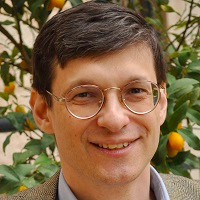
Yoram Hazony
Yoram Hazony is an Israeli philosopher, Bible scholar, and political theorist. He is President of the Herzl Institute in Jerusalem, and Director of the John Templeton Foundation’s project in Jewish Philosophical Theology. His books include The Virtue of Nationalism and The Philosophy of Hebrew Scripture.
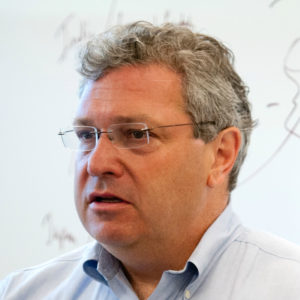
Robert Kagan
Robert Kagan is a senior fellow with the Project on International Order and Strategy in the Foreign Policy program at the Brookings Institution. He is a contributing columnist at The Washington Post. His most recent book is The New York Times bestseller, The World America Made.
Ray Takeyh
Ray Takeyh is Hasib J. Sabbagh senior fellow for Middle East studies at the Council on Foreign Relations (CFR). His areas of specialization are Iran, political reform in the Middle East, and Islamist movements and parties. Prior to joining CFR, Takeyh was senior advisor on Iran at the Department of State.